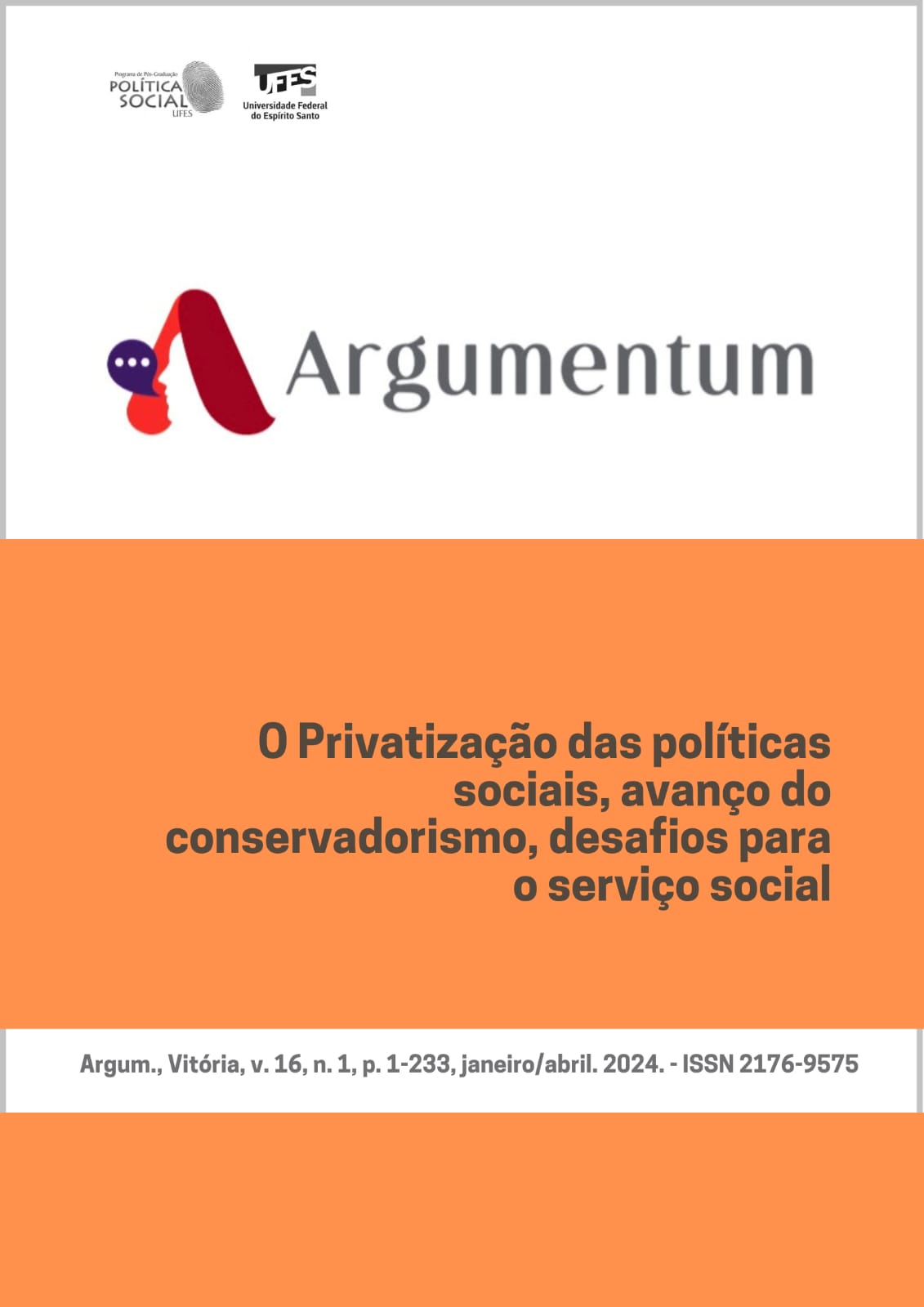Brazilian educational dependence and heteronomy: commodification of higher education as an important expression DEPENDENCE AND BRAZILIAN EDUCATIONAL HETERONOMY: mercantilization of higher education as an important expression
DOI:
https://doi.org/10.47456/argumentum.v16i1.41829Abstract
The article discusses higher education and the contemporary expansion of its commodification, as an important expression of Brazilian dependent capitalism. It employs the dialectical historical method, based on a bibliographical review of current dependent capitalist development, heteronomy and education. It also considers the 2020 Higher Education Census. It presents the foundations of dependent capitalism to identify the traits of Brazilian educational dependence, revealing how its structure and dynamics lead the country to sociocultural heteronomy and, as one of its current expressions, advances the process of commodification of higher education, especially via distance learning. It concludes that dependency renews dilemmas for higher education, demanding a constant struggle.
Downloads
Published
How to Cite
Issue
Section
License
Copyright Transfer Agreement
As a condition for submission, the authors must agree with the Copyright Transfer Agreement, by checking the box after reading the clauses.
The author(s) (hereinafter "AUTHOR") hereby agrees to transfer, without any financial compensation, the property of copyrights regarding Argumentum, a journal of the Postgraduate Program in Social Politics (Programa de Pós-graduação em Política Social), Federal University of Espírito Santo (Universidade Federal do Espírito Santo) - Av. Fernando Ferrari, 514 - Goiabeiras 29075-910, Vitória (Brazil), (hereinafter "ARGUMENTUM"), according to the following terms and conditions:
1. I am aware of the terms of "Care Ethics Research Guide" described in the Policies section.
2. AUTHOR warrants to be the writer and copyright holder of the WORK submitted.
3. AUTHOR declares that the WORK does not infringe the rights of third-parties; that the distribution of images (if existent) was authorized; and that AUTHOR assumes total moral and property responsibility for their content.
4. AUTHOR agrees to transfer all the copyrights concerning the WORK to ARGUMENTUM, especially the rights to edit, publish, translate into another language, and reproduce it through any process or technique. ARGUMENTUM becomes the exclusive owner of the rights regarding the WORK, and any total or partial reproduction, in any other medium, printed or electronic, is strictly forbidden without prior written consent by ARGUMENTUM.
5. The copyright transfer is unpaid and, therefore, there will be no monetary compensation whatsoever by ARGUMENTUM in order to use the TEXT.

